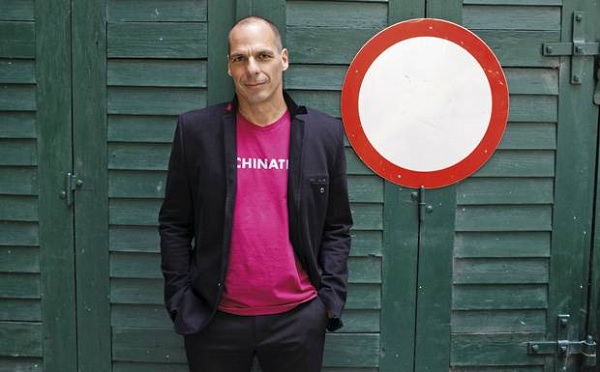It’s time Germans walked the talk of European unity.

By Krishnakumar S.
And I shall wear the creditor’s loathing with pride — Yanis Varoufakis on his resignation as the Finance Minister of Greece after a resounding mandate.
All knew only so well as to who the master strategist of the Greek side was, Yanis Varoufakis, its finance minister, who tendered in his resignation after a resounding mandate of victory.
Indeed, the No vote in the referendum has not only relieved Homer’s land of political uncertainty, but also passed the same on to the economic administrators of the troika in Europe, who have, with audacity, been pursuing and perpetuating the politics of austerity in the ravaged economies of Europe, much against their will, in the period after global financial crisis.
In the run-up to the referendum, the troika was trying through hoodwink and blackmail to extract a Yes vote from the Hellenites, upping the ante warning that Greece would be out of the euro once the No vote is through.
It was upon Yanis Varoufakis to go ahead with his masterstroke, when he announced that a No vote would not mean that the Greece would quit the euro, but rather the country would be in a stronger bargaining position, whereas as a Yes vote would mean that the Greek government would just sign on the dotted lines as required by the troika. Little did the Greeks think before going ahead with the No vote.
Prior to his tenure as a minister in the government, Varoufakis was already in the game of picking the brains of the new classical macroeconomists. Other than the usual economist’s toolkit, a fable or two from Aesop, or a plot or another from the Iliad, or even character from the Odyssey, came in handy for this professor, who was equally at ease with Adam Smith’s world as he was of Homer’s. Indeed, Varoufakis’ writings announced a refreshing entry of metaphors, allegories and similes into the world of economics, which over the years has turned its back to the world of literature.
One needs only to browse through the blogs of Yanis to understand as to how he has mastered this art of winning mass battles in the field of ideas in economic policy. The doctrinaire assumptions of neoclassical economics, which were once referred to by Keynes as the old habitual modes of thought which refused to die, was once again with redoubled strength turned upside down by Varoufakis in the course of his intervention.
Indeed, Varoufakis was undoubtedly transforming himself to be the Keynes of our generation. Europe was becoming nostalgic of past debates and battles against Gold Standard and laissez-faire, even as this professor from Athens was challenging the troika in Europe for the pusillanimity with which they were trying to force upon the ravaged economies of the southern Europe to ever increasing doses of austerity, only to find the national incomes of these economies plummeting form one low to another. Greek economy itself has contracted by as much as 25 percent since 2010.
It is worth remembering that Keynes, through the Economic Consequences of Peace, tried to make a strong case against the unjust reparations demanded of Germany by the victors through the Treaty Versailles after World War I. And it is indeed paradoxical that Varoufakis is forced to make a strong plea of resistance against the Shylock bankers of Europe, who are being patronized by the very same Germany.
Angela Merkel would do well to put her hands on some dusty copies of Economic Consequences and learn the lessons of magnanimity which is expected of victor. Unless the Germans are ready to extend a helping hand and walk the talk of European unity in letter and spirit, the idea of Europe would just wilt off, and less reminded the better of what would emerge from such a situation.
(Krishnakumar S. teaches economics at Sri Venkateswara College, University of Delhi.)
Read more from Krishnakumar S.:
Will Modi’s plan to channelize gold holdings from temples to banking system succeed?
Asian Infrastructure Investment Bank – Are the Bretton Wood twins being dislodged?
All eyes on Yellen, as global markets brace for reversal in US monetary policy
Prospects of growth in the world economy, but are emerging economies wavering?



